Essays.
All of the articles we have published under the tag Essays, beginning with the most recent.
-

Is the Working Class Back?
Workers have structural power, as the strike wave of 2022 demonstrated. But the working class remains weak and fragmented, and its politics are increasingly chaotic. What is to be done?
-
Welcome to Mugsborough
As a novel, ‘The Ragged Trousered Philanthropists’ is bad. Yet it has become a sacred text of the British labour movement. What can we learn from it today?
-

Not One Of The Decent People
The wounds of class are ever-present and life-long.
-

“Who is not here? Who is quiet? Who is unhappy?”
“Some people go into a militant strike as a sleazy creep, participate in the action alongside women strikers and supporters, and emerge at the end of it still being a sleazy creep.”
-
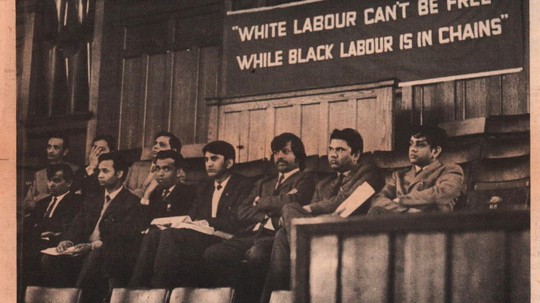
When British Trade Unionists Debated Black Power
On the 50th anniversary of the National Conference of Trade Unionists Against Racism, its wide-ranging deliberations need to be recognised.
-

Besieged City
Understanding monetary policy requires grasping the peculiar transnational class position of some of capital's key organic intellectuals: central bankers.
-

The Garden
“Class affects the mind, we know that, and it’s difficult to communicate this.”
-
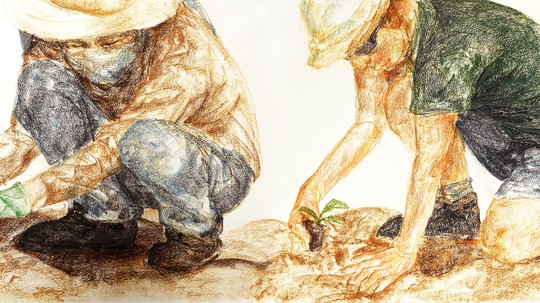
The Rebirth of the “Natural Worker”
The supposed “naturalness” of the Thai migrant agricultural worker as a basis for examining the longer history of racialisation and class formation in Zionist agriculture.
-

Neoliberalism in a Coma
Structural conditions are moving against neoliberal policy solutions— but, absent a counter-hegemonic force, this movement produces monsters.
-
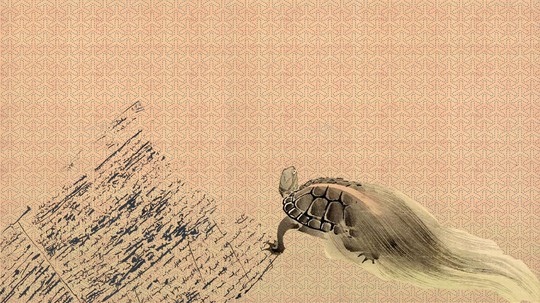
On slowness as method
Does ‘left media’ have to reproduce the attitudes and practices of the ‘mainstream’? How might we imagine something different?
-

Where Is Sudan? Refracting the Globe through Bilad al-Dahab.
Understanding the possible trajectories of Sudan since Omar al-Bashir was deposed requires locating it within the tide of forces, local and global, that regularly bypass its nominal borders.
-

Electoral Hegemonies Do Not Last Forever
The left are told we must vote Labour, because otherwise the Tories will win. But the late 19th century shows us how fragile these anti-Tory hegemonies can be.
-
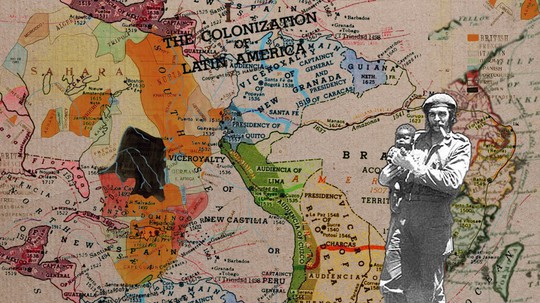
Che Guevara’s Anti-Imperialist Theory of Class
On the fifty-fifth anniversary his death, we're reading the young Guevara’s ‘The US Working-Class: Friend or Enemy?
-

The History of New Socialist: Part One
The history of New Socialist as a way of telling the history of the last few years of the British left. Part one considers "the proto New Socialist".
-

What could a left publication be?
Opening a conversation about what left media in 2022 is for, Daniel Eales offers a vision of grassroots analysis and critique.
-

Agroecology and the Survival of Cuban Socialism
Following the collapse of the Soviet Union, Cuba was forced to embarked on an agroecological programme of food sovereignty. Now, it offers an example to the rest of the world.
-

The Rio Cinema and the 1981-6 GLC
Much of the focus on the cultural politics of the GLC in the 1980s has been on flagship campaigns and events. The Rio Cinema tells a different story: the nurturing of a cultural ecology.
-

Land and Life: Feudalism and Environmental Change in the Philippines
In the Philippines, the struggle against imperialism, feudalism, and bureaucratic capitalism is a precondition of any ecological sustainability.
-
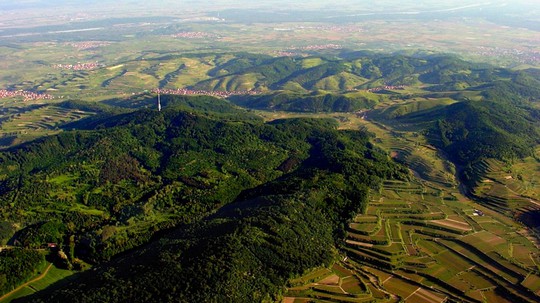
Can environmental left populism work? The case of the West German Green Party
A left populism with a major green element has been advocated as a way to reconstitute the left and address ecological crisis. However, the experience of the German Greens points to the limits of this project.
-

Red Apes
Histories of colonialism and extraction, told through their impacts on orangutans—and stories of red ape resistance.
-

FALC and its Discontents
In a contemporary "expansionist" Marxism, luxury plays a central role, but it also remains underthought—particularly in its ecological implications. The "severe luxury" of William Morris has much to teach us.
-

As the Floodwaters Rise: Survival on an Inundated Island
The effects of flooding are determined by regional and by class inequalities. As the state withdraws its from crucial functions, this imposes tasks for the left that are currently under-analysed.
-

Red Vegans against Green Peasants
Calls to end animal agriculture and rewild much of the world are calls for the intensification of the exploitation of the rural by the urban, and the dispossession of peasants, small farmers, herders and nomads.
-
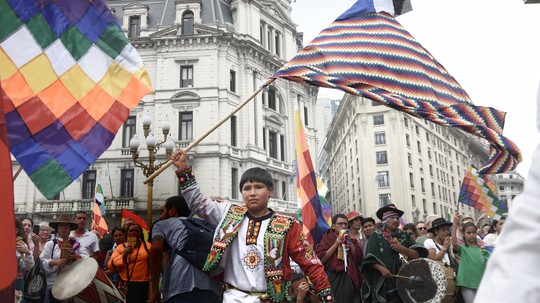
At the Base of a Pink-Green Tide
Could a growing wave of resistance across Latin America help to protect democracy and advance ecosocialist aims?
-

Precedent Thinking in 2020s Britain
To think about the relationship between past and present in terms of ‘precedent’ can seem odd—but this structure of feeling has become central to how events are understood and represented in contemporary Britain.
-
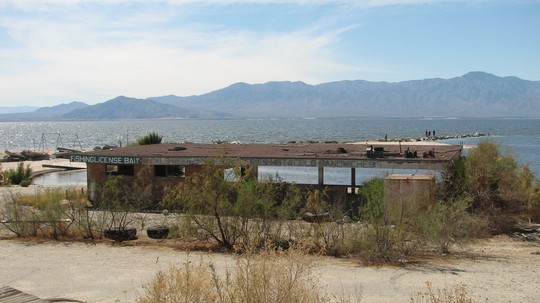
The Out of the Woods Mixtape
The Out of the Woods collective share some of their favourite music, with an accompanying essay exploring how these tracks relate to and shape our politics.
-

The Tory 'Green Industrial Revolution'
The Government’s so-called Green Industrial Revolution is really a plan to subsidise the private sector in a period of low growth and dampened demand.
-

The Political Economy of the Ecocide Machine
The shortages of the pandemic revealed the physicality of a wide range of commodities. To ignore this physicality is to obfuscate capital's imperialist and ecocidal character.
-

Stop Trying to Make Nuclear Power Happen
A number of eco-modernists are now arguing that the threat of climate crisis means that nuclear power is necessary. However, it remains wildly impractical, and at odds with any world we would like to build.
-
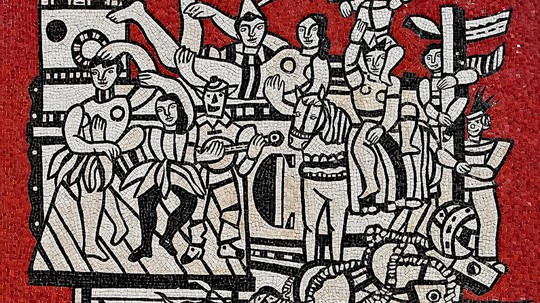
Writing, Aesthetics, Climate (A Bricolage)
How might we respond to Kate Soper's call for an avant-garde eco-socialist political imaginary? What is the time and space of the avant-garde?
-
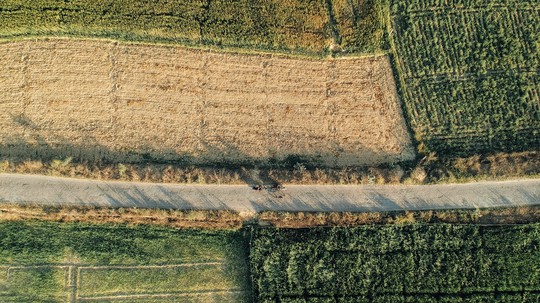
Understanding Kisaan Andolan
An extended study of the historical and world-ecological context of the Farmers' Movement struggles.
-

The Eco-Politics of the Sublime: Nature, Environmentalism, and Covid-Ecology
A conception of the sublime, liberated from its racist, sexist and domineering classic form, should form a part of any ecosocialist imaginary.
-

Kitchen Cultures: Fermenting (with) the trouble
The cultural politics of fermentation, explored through recipes, theory, poetry, and stories.
-

Country, City, Quarantine
What do horseshoe crabs, COVID-19, Stonehenge, ticks, and Kirstie Allsopp have in common? They all have a part to play in the story of how capital produces nature.
-

The Coronavirus Crisis Response in the EU
The Coronavirus crisis has seen a return to the familiar EU deadlocks. This can best be understood through how the EU represents and organises (and disorganises) class fractions.
-

‘Come 2 the park and play with us!’: Prince, acid communism, and sociality
In expressing joy in the social, creating lived utopias beyond the family, and destabilising normality, Prince is a key example and practitioner of acid communism.
-
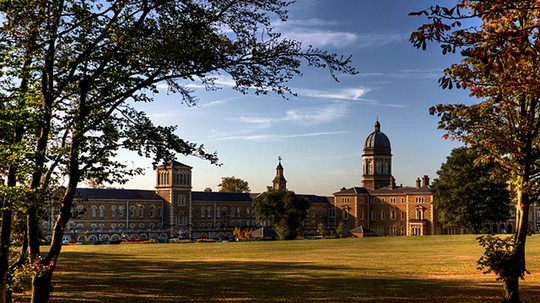
The continuation of policing by other means? Extending abolitionist critiques to the mental health system
If we are to think about alternatives to policing and prisons, we must also think critically about the mental health system’s own relationships to structures of institutional racism, violence, and the state.
-
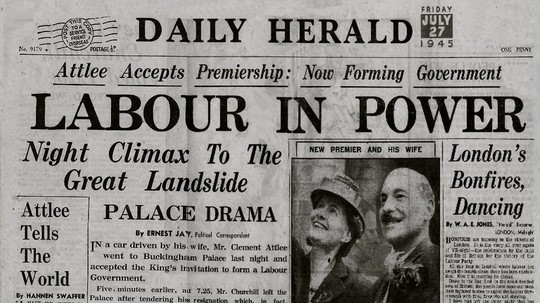
The Guilty Men Thesis and Labour’s Route to Power
Labour victory in 2025 will require a break with the common sense of the post-1979 era. We need a new Guilty Men thesis to enable that rupture.
-

No Space for Us? Race and the Labour Leadership
The Labour leadership contest and Starmer’s early leadership represent a return to normality for Labour – a normality in which the votes of Black and Brown people are taken for granted.
-

Bad New Times: Transfeminism and solidarity for the new decade
Socialist transfeminist proposals offer a challenge to the ever-increasing backlash against trans people.
-
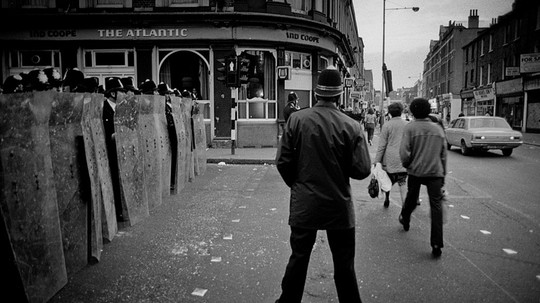
Riot Redactions, Colonial Reverberations
Punitive and militaristic policing has long been a fundamental part of the British state, grounded in notions of the unpoliceability of colonial subjects.
-

Another Nightingale: Coronavirus, Plague and the Colonial Violence of British Neglect
The disproportionate destruction of racialised communities through Covid-19 is the continuation of the colonial violence of which Florence Nightingale was a part.
-

Stalemate in Chile: Reflections on the Ongoing Revolt
Chile wants a revolution but a mixture of the effects of the Coronavirus crisis and an inequality of force has, so far, blocked it.
-

Socialists and Coalitionists
The advocates of coalition politics, whether big (anti-Tory) or small (labourist), have abandoned the struggle to transform belief and opinion. Opposing both coalitions is necessary for socialist renewal.
-

Introducing Raymond Williams
In the 1980s Raymond Williams was the thinker of the relation between the conjunctural and the organic. This grounded his position on electoral and political strategy.
-

The First New Socialist
The original New Socialist aimed “to renew democratic socialism” by engineering a broad political coalition. How successful was it?
-
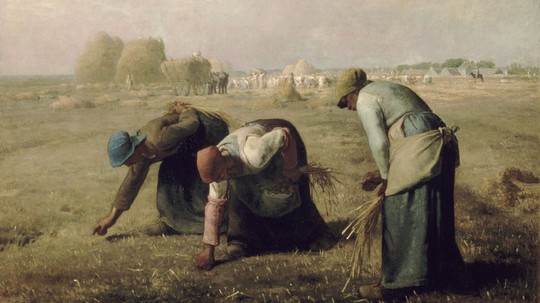
Unskilled Work?
Making claims for better pay or greater respect through skill is dangerous. Celebrating people’s aptitude for work that exploits them is a misplaced form of solidarity.
-

Left Economics from Below? Defending the Programme after Corbyn
Only a participatory socialist approach can make good on the potential of the Corbyn-McDonnell economic programme.